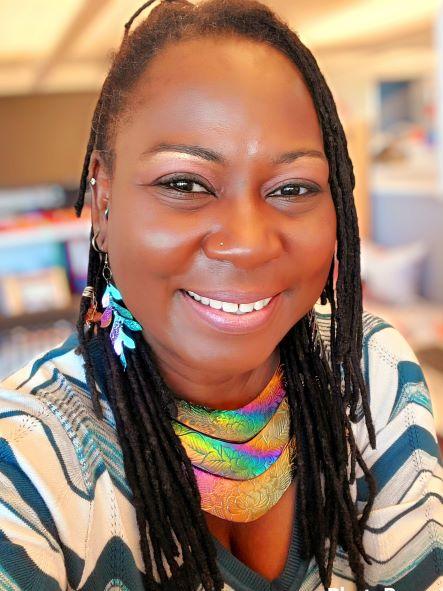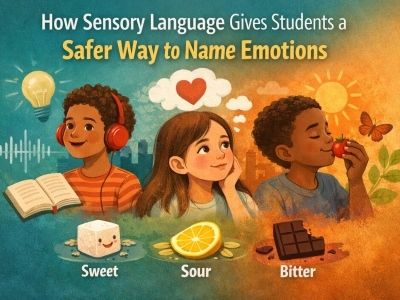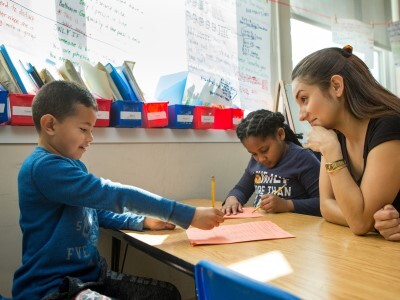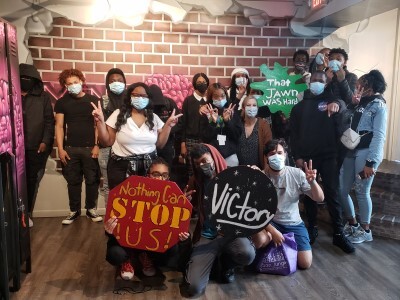Cultivating Equitable Learners: Why Pathway and Literacy Partners are Key to BPS Student’s Success
Topics
Together, educators are doing the reimagining and reinvention work necessary to make true educational equity possible. Student-centered learning advances equity when it values social and emotional growth alongside academic achievement, takes a cultural lens on strengths and competencies, and equips students with the power and skills to address injustice in their schools and communities.
Literacy and pathway partnerships can work hand-in-hand to support the success of students in our schools, especially those from marginalized backgrounds.
When I was in high school, a longggg time ago, I was in a pathway program sponsored by the National Academy of Travel and Tourism. I took additional classes focused on operating in the industry and also received coaching on how to dress for success, how to interview, and how to follow office etiquette. This pathway program required additional reading and comprehension as well. I had to apply the reading in workshops and in class which sharpened my vocabulary and expanded my skill set. With this support, I was able to secure internships that supported my interests. It also became an opportunity for attending college at a time when I wasn't sure what I was going to do after high school or how I was going to do it and afford it. This pathway program, infused with literacy development, broadened my horizons in many ways.
Fast-forward to today, in my role as manager of community and faith-based initiatives for Boston Public Schools, I have seen first-hand how literacy and pathway partnerships can work hand-in-hand to support the success of students in our schools, especially those from marginalized backgrounds.
Providing students with pathways that interest them also guide them toward a brighter future. Pathway programs provide not only college and career readiness but mentorship and leadership development. And all of these components support equitable literacy and improved literacy skills.
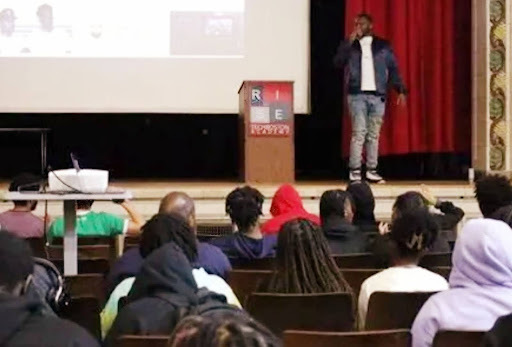
For many students in the Boston Public Schools (BPS) system, achieving literacy fluency can be an uphill battle. Socioeconomic factors, language barriers, and limited access to high-quality resources all contribute to literacy disparities. This is where equitable literacy comes in—a commitment to ensuring all students, regardless of background, have the tools and support they need to become proficient readers and future leaders.
Equitable literacy equips educators and institutions with the knowledge and skills to identify and address inequities in the education system. This involves understanding how factors like race, ethnicity, and socioeconomic background can impact a student's learning experience. This understanding empowers educators to create learning environments that are fair and inclusive for all students.
Pathway programs build off of this foundation by using the understanding of equity to provide targeted support to students who may be falling behind or need extra help through embedded interventions such as tutoring, mentoring, or specialized instruction. The goal is to equip students with the skills and knowledge they need to succeed in school and beyond.
At the BPS Office of Partnerships, we are working to sustain relationships with both literacy and pathway partners as well as recruit new ones to keep things moving in the right direction for students.
- Increased Graduation Rates and College/Career Readiness: Reports show pathway programs like early college and career academies can significantly improve graduation rates and prepare students for higher education or directly into careers. This is especially important for students who might otherwise face challenges transitioning to post-secondary options.
- Equitable Outcomes: Literacy and pathway programs can help address achievement gaps between different student demographic groups. By providing targeted support and clear paths toward future goals, students from historically underserved communities have a better chance of success.
- Student Engagement and Motivation: These programs also offer students a sense of direction and purpose in their education. By connecting coursework to real-world applications and future possibilities, students are more likely to be engaged and motivated to learn.
- Meeting the Needs of a Diverse Student Body: BPS has a diverse student population with a wide range of interests and goals. Both literacy and pathway programs allow students to explore different options and find a path that aligns with their strengths and aspirations.
Literacy and Pathway Partners: Building Bridges
Literacy partners are trained volunteers or mentors who work directly with students, providing individualized reading instruction and fostering a love for books. Studies consistently show the positive impact of literacy partnerships on student achievement. For example, research by the National Reading Panel found that students who participated in one-on-one tutoring programs made significant gains in reading fluency and comprehension. With programs or summer reading initiatives focused specifically on literacy development, these literacy partnerships offer a unique set of benefits that reinforce the benefits students can get from participating in pathway programs:
- Personalized Instruction: Literacy partners can tailor their approach to each student's needs and learning style, filling in gaps in foundational skills or encouraging a love for specific genres. Strong literacy skills are the foundation for success in any pathway program. Whether it's a career training program, a college prep course, or even job skills development, being able to read, write, and comprehend information effectively is crucial. Literacy programs equip students with the tools they need to thrive. For example, PREPPED Youth is one of our pathway programs that is ending the school year with 60 students who have received an 80% or higher on the real estate practice exam. These students are not only PREPPED certified, but they also qualify to apply for a real estate license, funded and supported by the organization.
- Increased Engagement through Increased Confidence: One-on-one attention keeps students motivated and fosters a safe space for them to ask questions and build confidence in their reading abilities. It builds confidence and translates to better communication. Pathway programs often involve learning new terminology, following instructions, and completing paperwork. Literacy programs can help students develop these skills, which are essential for success in any pathway they choose.
- Accessibility to Mentorship and Role Models: Both pathway and literacy partners provide social-emotional learning to students. They can be positive role models, demonstrating the importance of reading and helping students see themselves as capable readers. Some pathway programs may even integrate literacy development into their curriculum, recognizing the importance of foundational skills. This combined approach can be particularly helpful for students who may need extra support in their literacy skills.
Literacy and Pathway Partners in Boston Are Making a Difference
Here in Boston, several partner programs have demonstrated success for the city’s youth.
- City Year: Their one-on-one tutoring program has been shown to improve reading proficiency for participating students.
- Read to a Child: This volunteer program pairs community members with students to promote early literacy skills.
- Future Chefs: Future Chefs is a culinary pathway program that also focuses on leadership development. It empowers youth to take charge of their future by providing opportunities to lead and to develop the skills needed to grow in their personal and professional life beyond high school. According to Future Chefs, “the life skills and knife skills learned in the kitchen can be applied meaningfully in all avenues of a fulfilling life.”
- PREPPED Youth: PREPPED Youth is a real estate-focused pathway program. This team of educators and mentors provide youth with a nurturing and supportive learning environment and the financial literacy and career skills they need, while also building a network that supports their pathways to success.
Two BPS initiatives are also great examples of strategies and engagement events that are student driven and literacy focused:
- Boston Community Hub Schools: This long-term strategy within the district is designed to actively engage the resources of each community around student and family success.
- BPS Office of Community Engagement: This department works to ensure effective school-community collaboration and allocation of resources and tools that encourage authentic engagement of schools, families, and the community in BPS decision-making and policy
Boston Community Hub Schools, which comprises 14 Boston Public Schools, is at the forefront of implementing the district-wide focus on Culturally and Linguistically Sustaining Practices (CLSP). CLSP encourages educators to incorporate students' cultural backgrounds and native languages into their literacy instruction. Boston Community Hub Schools has greater emphasis on involving families in their students' literacy development. The schools use workshops, partner resources, and community events to empower parents and caregivers to support reading at home.
The Office of Community Engagement hosted their first annual Book Fair that spanned over 3 days (May 20th, 23rd, and 24th) for 1,500 students who attend schools that do not have libraries. Students were able to select from an array of books. This event was intentional in including local authors and gathering partners to engage with and read to students.
Extended Learning Opportunities before and after school as well as during out of school time offer increased personalized learning environments for students to allow for more individualized attention to students' literacy needs. Schools that have stronger partnerships with local literacy organizations and programs provide students with access to additional literacy support outside the classroom.
The impact of literacy partners is undeniable. However, to truly address the literacy needs of all students, more partners and collaborations are needed. This is where the community can come together.
By prioritizing equitable learning and supporting the work of pathways and literacy partners, we can ensure that all students have the opportunity to become confident, empowered contributors of the community. Together we can cultivate a generation of learners who embrace the power of words and unlock their full potential.
All photos courtesy of the author.

